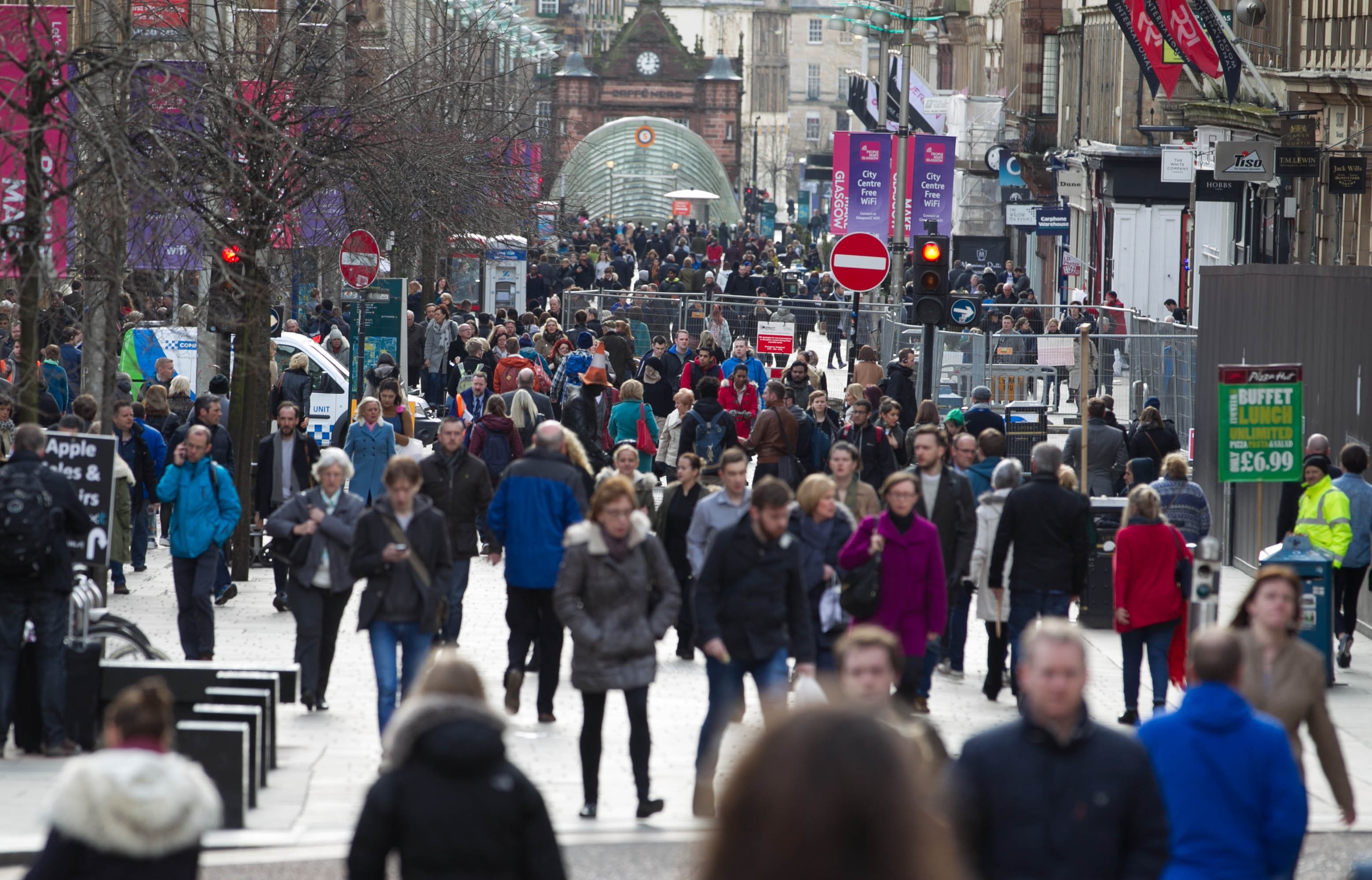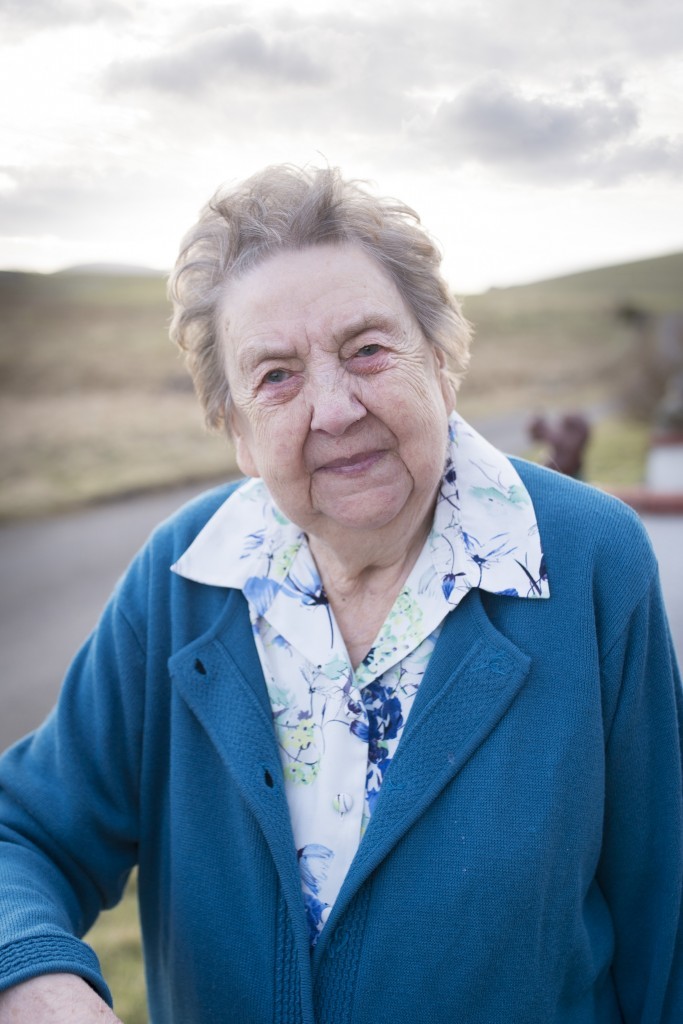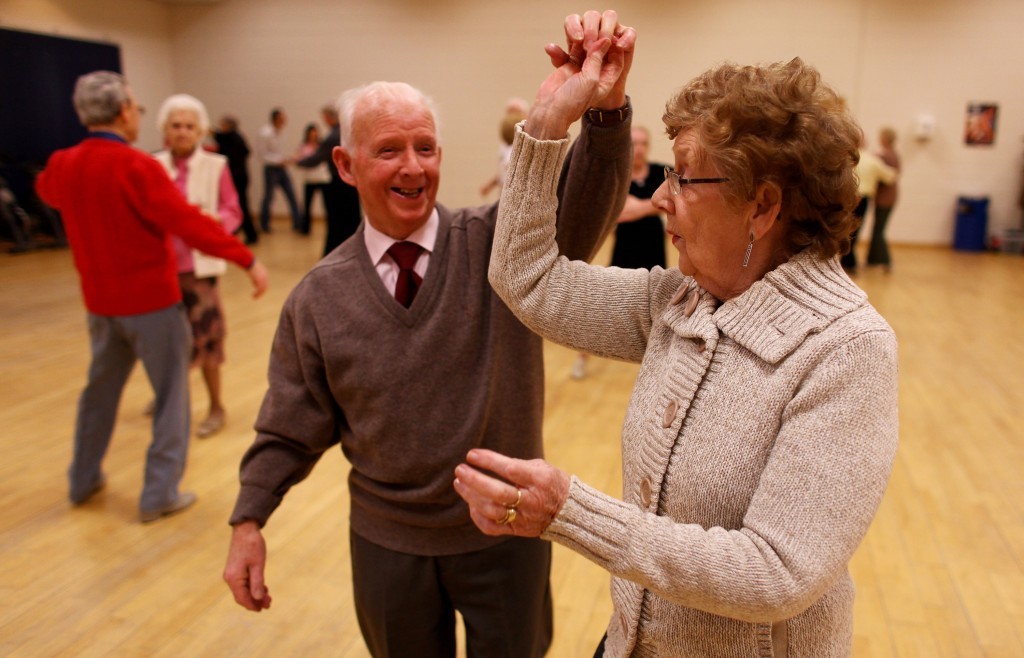
The darkness seems to go on and on.
For endless hours it can be just her and her radio. Maybe a talking book. But no company.
That fact that she’s almost blind makes the darkness, the loneliness, that much more profound.
“The hardest part is in the winter,” said the 84-year-old from Stromness on Orkney.
“That’s the loneliest time. When you close your door properly at half three or four in the afternoon and you probably don’t see anybody all that evening and the next day.
“When it’s lighter in the evenings you can go outside and sit and listen to the birds. People walk past walking their dogs and most of them say hello.
“In the dark winter nights it can be a long, lonely time, especially when you can’t see the telly or read a book.
“I find that’s often the hardest bit – losing your eyesight. It makes the loneliness that bit deeper.”
Isobel lost her husband, Oliver, to a brain tumour 36 years ago, when he was just 51.
She has family on the islands – three children and 17 grandchildren and great-grandchildren – but in common with many families these days, busy lives mean Isobel can sometimes spend a fair amount of time on her own.
The changing trends in her area have had an effect too.
Where there used to be neighbours there are now holidaymakers, strangers who appear and disappear.
Isobel explained: “The neighbourhood around me used to be very good, but they turned it all into chalets so it’s different people coming and going.
“Now I don’t have a neighbour just across the road who pops out and in the way it used to be.”
Sadly, her experience of isolation isn’t unusual, and today an investigation by The Sunday Post uncovers the tragic extent of loneliness in Scotland and the detrimental effect it is having on the health of those struggling on their own.
Our probe has also discovered the pressures faced by charities as they struggle to cope with the huge demand placed upon them.
Astonishingly, 100,000 Scots admit to feeling lonely some or all of the time.
Given half of those aged 75 and over live on their own, it’s likely many will be elderly.
Studies have also shown the number of lonely older people is soaring as families and friends have less time to spare.
However, the elderly aren’t the only ones being cut off, with younger people often suffering the same isolation.
Overall, one in five people now live on their own – many of them struggling with loneliness.
Tragically, the effects of this social isolation can have a hugely detrimental effect on their health.
Chronic loneliness has been found to be as bad for a person as smoking 15 cigarettes a day, and twice as harmful as being obese.
Along with raising a persons’ chance of dying by 10%, it has been found to cause conditions including heart disease, cancer and depression – as well as malnutrition.
“In public health, we talk all the time about obesity and smoking but not about people who are lonely and isolated,” said Kerstin Gerst-Emerson, an expert in the field of ageing and health at the University of Georgia in the US.
“There are really tangible, terrible outcomes. Lonely people are dying, they’re less healthy, and they are costing our society more.”
Despite the scale of the problem, many councils do not mention loneliness in their strategies to promote health and wellbeing.
Organisations tackling the issue, such as Age Scotland and the Campaign to End Loneliness, are calling for the issue to be given a greater emphasis.
Also of concern is the fact that the very services tackling the issue are struggling to meet demand.
Contact the Elderly, which runs monthly tea parties for older people, said it has around 100 people on its waiting list.
The group also believes this is just the tip of the iceberg as it has encountered huge difficulty in reaching the people it wants to help.
Chief executive Mary Rance said: “The rising concern for us is not only those on our waiting lists.
“But the thousands of older people who are completely cut off from society and therefore not on our radar at all.”
Isobel can vouch for the positive effects such organisations can have.
Since joining her local Befriending Network she has noticed a huge improvement in her quality of life.
“It’s a wonderful, wonderful thing for me, and the girlie that I got is just a marvel,” she said.
“I’m very, very lucky I got her. She is such a wonderful person, she’s really opened a lot of doors for me.
“She’s full of fun and takes me out, it’s lovely. I get the chance to do wee visits and she brings me talking books.
“I’d recommend a befriending service. Even if they only come in and talk to you, if you’re housebound or can’t really get out far, that person can give you a big release from the lonely part of your life.”
But not everyone is as fortunate as Isobel.
With many charities facing similar issues to Contact the Elderly it’s estimated there are thousands of isolated people waiting desperately for help.
Also, as local government cuts approach, budgets for elderly services are being stretched to breaking point.
Food Train, a grocery delivery charity with 2,100 older people on its books, fears whole branches could be shut down if government grants are lost.
“This means anywhere between 100 and 300 people could find themselves without a food source,” said CEO Michelle McCrindle.
Ms McCrindle said the government was making steps towards tackling loneliness but that “joined up thinking” was needed between health and social care to help combat the problem.
She said: “The current approach to older care is not fit for the long term, as we’re expecting a 15% increase in over 85s in the next five years.”
Services are struggling to keep pace with a rapidly ageing population that is expected to increase by 9% between 2012 and 2037 in Scotland, pushing already reduced services to breaking point.
And the outcome is rampant loneliness, warned Ms McCrindle.
“Health and social care isn’t growing to meet demand,” she added. “The challenge at this point is the scale of unmet need.”
Experts are calling for loneliness to receive the same funding and attention from the Scottish Government as other public health issues such as smoking and obesity.
The Befriending Network in Scotland pairs up older people who are in need of company with volunteers.
CEO Liz Watson said: “If loneliness was a disease we’d be calling it an epidemic.
“These statistics demonstrate conclusively that loneliness is a serious public health issue, and requires a response from all levels and across all sectors.”
It’s an issue we should all engage with, for it can affect any one of us at any time. Loneliness is no respecter of age, gender or social background.
Isobel herself knows how things can change out of the blue – how you can go from leading a connected life, full of people, to one of isolation relatively quickly.
“There used to be people walking by and popping in for tea but a lot of them are infirm now.
“I used to be a shop assistant for a few years before I married and I also worked at a hotel.
“We were a good crowd of lasses and used to visit each other often.
“But most of my friends have passed on. Most of them are waiting for me on the other side.
She wasn’t old when loneliness first took root. She was only in her 40s when she lost her husband.
“I can very much understand how people feel when they lose a partner,” she sighed. “I still miss my husband at times.
“When difficult times arise, I find myself thinking, ‘I wonder how he would handle this.’ We had a very, very happy 30 years together.”
Earlier this year The Scottish Government pledged £300,000 to tackle loneliness.
Now, The Sunday Post can reveal the government has added £200,000 to that fund in recognition of the sheer scale of the issue.
The announcement of the new money follows a report presented to the government last October detailing the damaging extent of loneliness and isolation.
The new £500,000 Social Isolation and Loneliness Fund was announced by Social Justice Minister Alex Neil.
Mr Neil said: “This money will support community groups to test out innovative approaches to tackle loneliness and isolation in their local areas.”
Alongside the new fund is an extra £248,000 set aside for established services doing vital work to help Scotland’s rapidly growing elderly population.
However, while the new cash is a step in the right direction, experts have said there is much work still to be done.
Marcus Rand, Director of the Campaign to End Loneliness, said Scotland needs to set national measures on loneliness.
He said: “This would send a powerful signal and provide a solid policy platform that politicians at all levels can use to measure and drive positive change on this critical issue.”
Isobel has a firm view on why the problem exists, and may be getting worse.
She said: “I think a lot of people are living longer, and I think a lot of families aren’t giving their mothers the time that they should.
“Having said that, some old grannies can be hard work too – they don’t like kids coming in and rattling the place up. It works both ways.”
And her advice to those who may, like her, be no stranger to loneliness?
“I’d say anybody should get in touch with a befriending service and see if they can get someone.
“Just keep your pecker up and try to keep your sense of humour. That’s very important. That’s what get’s you through.”
READ MORE
Chronic loneliness and unmet care needs: Age UK reveal concerns over quality of life of pensioners
Pensioners so lonely that nuisance calls are highlight of their day

Enjoy the convenience of having The Sunday Post delivered as a digital ePaper straight to your smartphone, tablet or computer.
Subscribe for only £5.49 a month and enjoy all the benefits of the printed paper as a digital replica.
Subscribe
